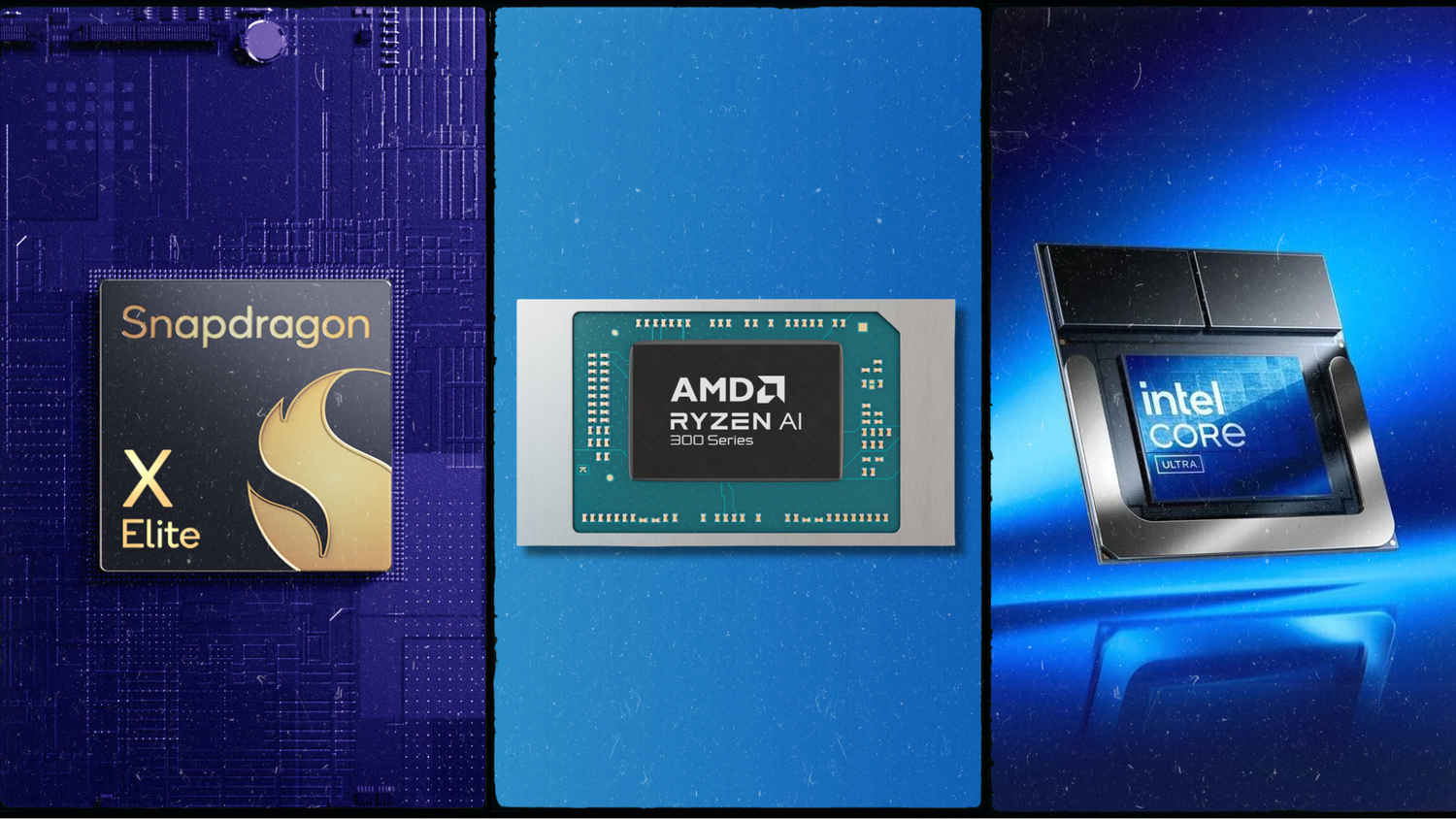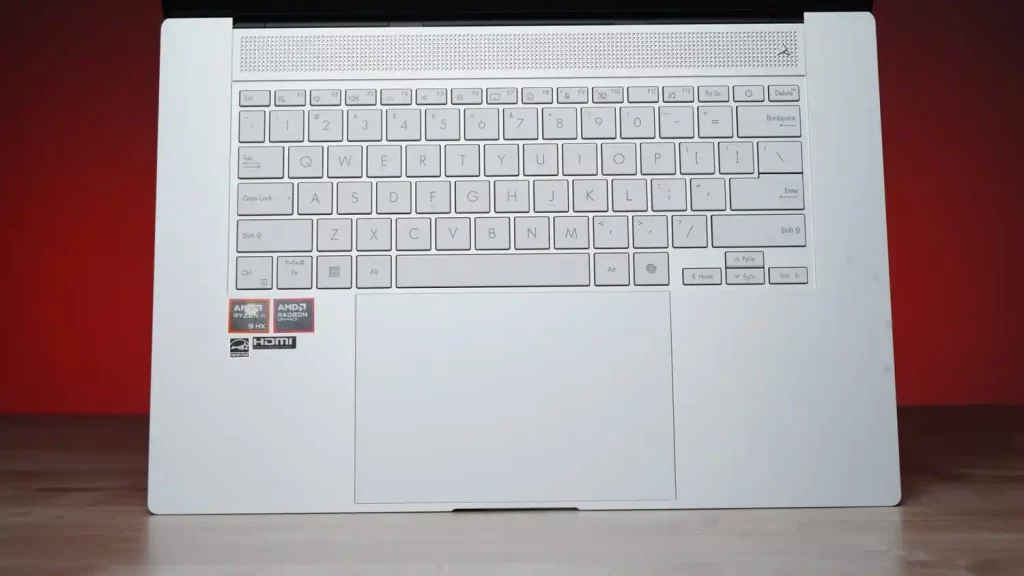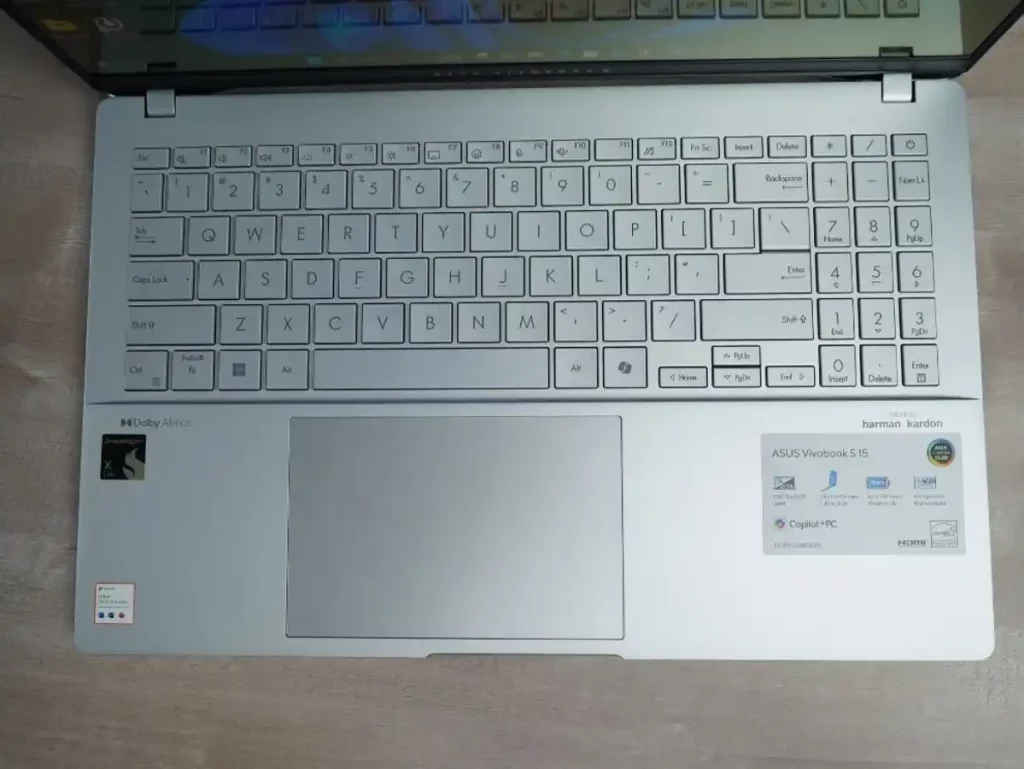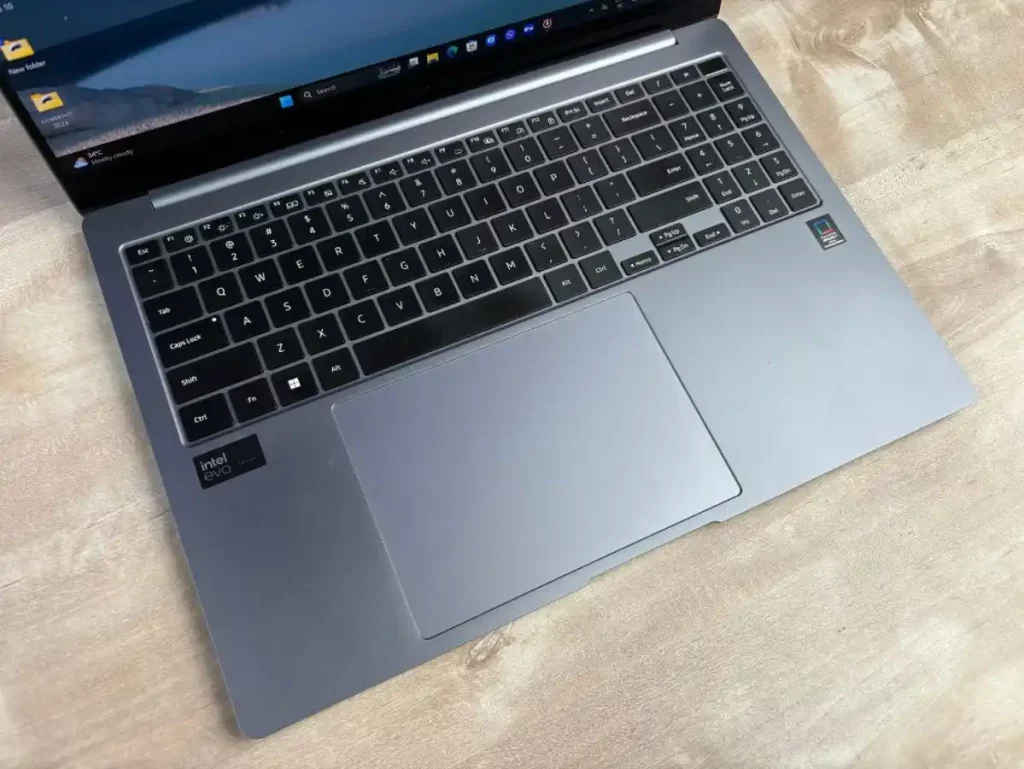Battleground AI: The Great Chip War Heats Up

Each chip giant is approaching the market with its unique strengths and strategies, but the common goal is clear: to capture the consumer’s attention and come out on top. I’ve recently tested and compared AI-powered (dedicated NPU) laptops running on AMD, Intel, and Qualcomm platforms, and each one of them seems to have taken a distinct stance in the rapidly evolving AI PC space as an attempt to build a unique appeal.
 Survey
SurveyAt the centre of this battle is the Neural Processing Unit (NPU), a specialized chip designed to handle AI workloads efficiently. AMD is claiming the highest-performing NPU and integrated GPU with its Ryzen AI 300 series, while Qualcomm is focusing on efficiency and battery life with its ARM-based Snapdragon X Elite SoC. Intel, meanwhile, is lining up with its Lunar Lake launch, expected to deliver the highest performance along with great efficiency.
However, amidst the excitement, a cloud of uncertainty hangs over the AI PC market. Microsoft’s Windows Recall feature, touted as a game-changer for AI PCs, has been delayed, and privacy concerns surrounding the feature have raised eyebrows. The Recall feature, which logs and records everything you do on your laptop, allowing you to search across time to find the content you need, has sparked concerns about data security and privacy.
Consumers are taking a wait-and-see approach, hesitant to invest in a technology that is still evolving and surrounded by uncertainty.
This delay and the surrounding controversy have slowed down the urgency of upgrading to an AI-ready laptop with an NPU. Consumers are taking a wait-and-see approach, hesitant to invest in a technology that is still evolving and surrounded by uncertainty.
AMD’s Balanced Approach
AMD’s Ryzen AI 300 series is a powerful contender in the AI PC market. Its powerful integrated GPU and a 50 TOP NPU offer a balanced approach that delivers high performance at great efficiency. AMD’s focus on delivering performance across all three frontiers makes it a top contender when it comes to performance-centric workloads. However, it’s not as power efficient as the ARM-based Qualcomm SoC and hence it will have to strike that balance with laptop designs and configurations with partners to ensure it can compete when it comes to batterylife.
AMD’s focus on delivering performance across all three frontiers makes it a top contender when it comes to performance-centric workloads
AMD’s strength lies not only in its hardware but also in its software ecosystem. With its AMD XDNA2 NPU, AMD is providing developers with a robust platform to build AI applications. The company’s commitment to open standards and collaboration with industry partners ensures that its technology is widely adopted and supported.

Qualcomm’s Efficiency Crown in AI compute
Qualcomm’s Snapdragon X Elite SoC is a game-changer when it comes to efficiency. Its ARM-based design and optimized NPU deliver unparalleled battery life, making it an attractive option for consumers who value portability and convenience. Qualcomm’s focus on TOPS per watt is a clever move, as it shifts the narrative from absolute performance to efficient performance.
Qualcomm’s Snapdragon X Elite SoC is a game-changer when it comes to efficiency
But Qualcomm’s strength lies not only in its hardware but also in its deep understanding of mobile devices. With its extensive experience in designing mobile processors, Qualcomm is well-positioned to deliver AI PCs that are optimized for mobile use cases. Its partnership with Microsoft to deliver the CoPilot+ PC is a testament to its commitment to innovation and collaboration.

Also Read: WazirX hack: Confusing aftermath of the biggest cyberattack on Indian crypto exchange
Intel’s upcoming Lunar Lake looks promising
Intel’s Lunar Lake launch is highly anticipated, and for good reason. With its focus on pure performance and great efficiency, Intel is poised to deliver AI PCs that meet the demands of even the most intensive workloads. Intel’s strength lies in its deep partnerships with PC manufacturers and software development houses, ensuring that its technology is widely adopted and supported.
Intel is poised to deliver AI PCs that meet the demands of even the most intensive workloads. Intel’s strength lies in its deep partnerships with PC manufacturers and software development houses
However, Intel’s challenge lies in its ability to adapt to the changing landscape. With AMD and Qualcomm nipping at its heels, Intel must innovate and differentiate its offerings to stay ahead. Its focus on optimized performance is a step in the right direction, but it must also address concerns around efficiency and battery life.

The Future of AI PCs
As the AI PC market continues to evolve, one thing is clear: the future belongs to those who can deliver efficient, high-performance AI capabilities. With AMD, Qualcomm, and Intel each bringing their unique strengths to the table, the consumer stands to benefit.
Beyond the chip giants’ rivalry, the AI PC market is missing a crucial piece of the puzzle: a killer AI application that can drive demand for laptops with powerful and efficient Neural Processing Units (NPUs). All the current-day NPU-optimized applications that I have tested and seen demos of are creator-centric applications or niche use cases that miss the mass appeal. The Windows 11 Recall feature was poised to be the catalyst, but its potential has been hindered by pressing privacy and data security concerns. To move forward, industry collaboration is essential to establish robust standards and best practices, addressing these concerns and unlocking the full potential of AI PCs.
As the AI Chip Wars unfold, I’m left wondering: what’s your take on this revolution? Are you eager to upgrade to an AI-equipped PC, or are you content with the status quo? Do you see on-device AI processing as a game-changer, or are you comfortable relying on cloud-based compute? And what about data privacy – is it a concern that keeps you up at night, or do you trust the industry to get it right? I’d love to hear your thoughts on this brave new world of AI PCs. Drop me a line at soham@digit.in, and let’s continue the conversation. Your voice matters in this debate, and I’m eager to hear your perspective on the AI PC war that’s knocking on our doors.
Soham Raninga
Soham Raninga is the Chief Editor for Digit.in. A proponent of performance > features. Soham's tryst with tech started way back in Dec 1997, when he almost destroyed his computer, trying to make the Quake II demo run at >30FPS View Full Profile